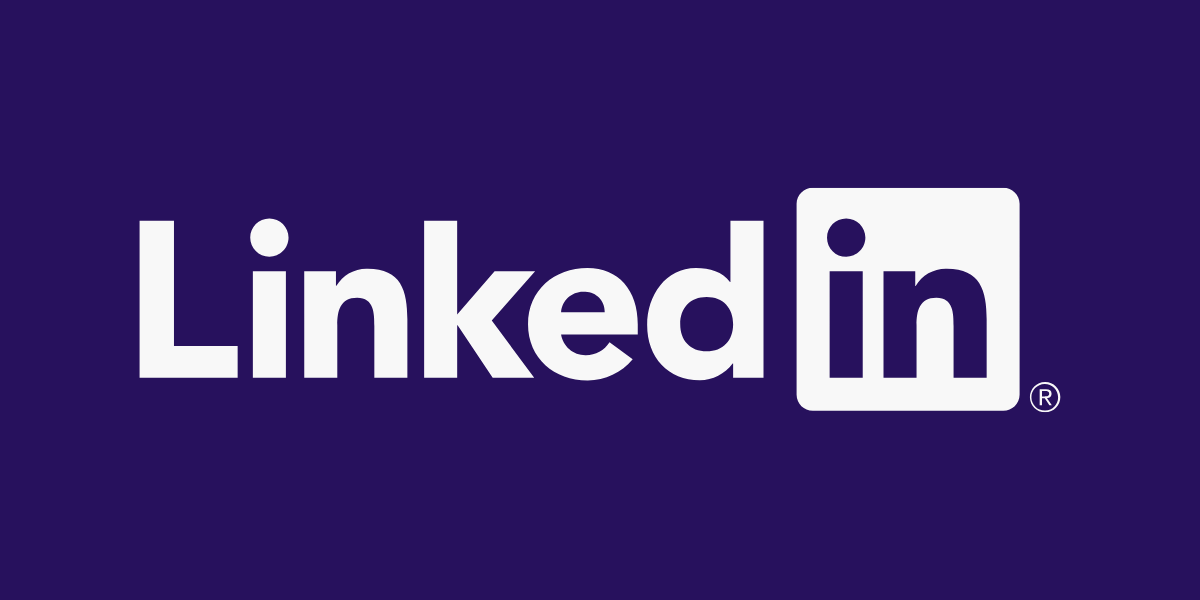Job interviews can bring on a lot of anxiety and fear, testing not only your capabilities for the role but also your ability to understand and answer unpredictable questions. As well as your traditional job interview questions, you may find yourself getting asked unusual and weird questions that don’t seem to fit in with the rest of the interview. These ‘curveball’ questions can reveal the most about your character, personality, creativity and potential fit within the organisation’s team. These questions push beyond your well-rehearsed responses, giving a genuine, authentic insight into you.
In this article, we will take a look at some of these weird and unusual interview questions and see why they are asked, and how to answer them.
Why do employees ask unusual questions?
It’s not a surprise that many candidates rehearse the questions they think they are going to be asked ahead of the interview. Employers know this but want to see how you think on your feet, which is why they sometimes ask these unusual or weird questions. These can test you on your approach to problem-solving, critical thinking and stress handling.
Let’s take a look at some of the weirdest and unusual job interviews that you may be asked.
1. If you were a brand, what would be your motto?
Why It’s Asked: This is a fantastic question, and a great opportunity to showcase your self-awareness and personal values. It is a great chance to show what sets you apart from other candidates. It is important that your ‘unique selling points’ match the company’s culture, mission and values. This demonstrates that you are a strong candidate and shows not only your potential to fit in but also as a strong contributor to the company’s success.
Example Answer: “Empower, Engage, Excel. I believe in empowering those around me, engaging with challenges head-on, and striving for excellence in everything I do.”
2. Describe a colour to somebody who is blind.
Why it asked: This question assesses your creativity and empathy when communicating. It challenges you to go further than a straightforward explanation, and to use your imagination to explain the essence of colour through a description that focuses on senses and emotion.
This task highlights your capacity to render abstract ideas accessible and impactful, showcasing your proficiency in creative problem-solving and empathetic communication. It’s not merely about describing a colour; it’s about forging a deep connection and demonstrating how you can simplify and humanise complex information, a valuable skill in any role.
Example Answer: “Imagine the feeling of warmth on your skin under the midday sun; that’s yellow. It’s the sensation of a cosy, comforting presence.”
3. If you were a superhero, what would your superpower be and how would you use it in this job?
Why It’s Asked: This is asked to understand more about your self-perception of your strengths, and how you would apply these in a work setting. Asking you to choose a superpower and how you would apply it to the role offers the employer a unique look into your problem-solving skills and your capabilities for innovation.
It is a good way for the interviewer to see your creative thinking, and how you think that you will contribute to the team’s success.
Use this opportunity to showcase your imagination, highlighting how your unique set of skills and abilities can drive the business forward and contribute to its growth and success. You should tailor your answer to fit what the job description has said and what skills the ideal candidate must have.
Example Answer: “My superpower would be telepathy, as this would offer insights that were transformative to my team and the organisation. This power would allow me to pre-empt challenges and align my efforts and approach to effectively meet clients’ needs.
It would also improve the team’s communication and allow us to foster a collaborative approach to client satisfaction through understanding and empathy.”
5. If you could have dinner with any fictional character, who would it be and why?
Why It’s Asked: This question gives the interviewer a glimpse into what you are passionate about and the values that you hold dear. It’s a great way to showcase your personality beyond your CV. By asking you which fictional character you would like to have dinner with, interviewers are keen to see who strikes a chord with you and why.
It’s a good opportunity for them to see the traits you admire, whether that’s courage wit, or perhaps amazing problem-solving skills.
It’s not just about who you like, but why you like them. This gives the interviewer a better understanding of how you will fit within the team, and what unique qualities you may bring to the role.
Example Answer: “If I could have dinner with a fictional character, it would have to be Sherlock Holmes. The way that he can assess a situation under pressure, and solve complex problems quickly is something that I admire and strive to replicate within my work.”
6. Imagine this building was a jungle, how would you survive your first day?
Why It’s Asked: This question aims to uncover how you take on challenges, demonstrate adaptability and resourcefulness, and how you strategically plan. It places you in a hypothetical scenario to see how you handle stress and unpredictability and assess your prioritisation skills, using available resources creatively. Essentially, it tests your problem-solving skills and your readiness to adapt to dynamic and high-pressure environments, reflecting on how you might approach real-world workplace challenges with innovation and resilience.
Example Answer: “If this building turned into a jungle, I’d survive the first day by quickly assessing the situation, being resourceful with available materials, and forming alliances. Much like tackling a new project at work, I’d identify resources and hazards, and then think of creative ways to use what’s at hand to address challenges. Teamwork is also important, so I’d look for others to join forces with, reflecting the importance of collaboration in overcoming workplace challenges. These strategies would help with not just survival, but success, mirroring my approach in dynamic work environments.”
7. If you could eliminate one thing from your daily routine, what would it be and why?
Why It’s Asked: This question is asked to understand your self-awareness. It is asked to find out how someone understands their work habits, and how they look to improve them. This question is all about identifying distractions and your plan to enhance productivity. It’s valuable for employers looking for self-starters who genuinely want to be better. It also highlights how candidates manage their tasks, like the example of reducing email checks to focus better. This smart tactic shows they’re serious about cutting out distractions to boost their productivity.
Example Answer: “I’d stop constantly checking emails, as it breaks my concentration. By setting specific times to handle them, I can focus better on important tasks. This small change would greatly improve my productivity and work quality, ensuring I stay focused and manage my time well.”
8. You’ve been given an elephant. You can’t give it away or sell it. What would you do with the elephant?
Why It’s Asked:
Facing the unusual scenario of being given an elephant isn’t just a test of your imagination—it’s a deeper look into how you handle unexpected challenges that don’t fit the norm. This question isn’t simply about thinking outside the box and is a great opportunity to showcase the ability to think on your feet. How you see yourself dealing with this elephant can reveal a lot about your approach to problem-solving and your capacity to envision innovative solutions that benefit not just you but potentially the wider community. It’s a chance to show that you’re not just a problem solver but a forward-thinker who can turn even the most bizarre situations into opportunities for positive action.
Example Answer: “Given an elephant I can’t sell or give away, I’d partner with a respected wildlife sanctuary to make sure it’s well looked after in its proper habitat. Alongside this, I’d kick off an awareness campaign about wildlife conservation, using the situation to educate folks on the importance of protecting elephants and their natural environments. This way, the elephant is cared for, and we also spread a positive message about conservation.”
9. How many pennies could fit into this room?
Why It’s Asked: This question tests your ability to engage with problems that require analytical thinking and a strategic approach to problem-solving. It challenges you to break down an abstract, overwhelming task into manageable parts, assessing your capability for logical reasoning and estimation skills.
Example Answer: “To estimate how many pennies could fit in this room, I’d start by calculating the room’s total volume, then compare it to the volume of a penny. This involves measuring the room’s dimensions to determine its capacity, then using the volume of a standard penny to work out how many could theoretically fit into the space. My focus would be on demonstrating a methodical approach to problem-solving, showcasing my ability to tackle large-scale challenges through logical reasoning and practical estimation.”
10. Are you a hunter or a gatherer?
Why It’s Asked: This question is all about finding out your working style, and how you approach tasks. It distinguishes between those with proactive traits (hunters), who actively go for their goals and challenges, and those with more reactive or supportive traits ( gatherers) who excel in collecting and utilising information, understand comprehensive and complex scenarios, and work towards collective goals.
Example Answer: “I identify more with being a gatherer. My strength lies in gathering information to get a complete picture of a situation before making decisions. This approach allows me to develop solutions that are not only effective but also beneficial for the entire team, ensuring that we are aligned and moving forward together. It reflects my preference for a collaborative working style and my ability to contribute to the team’s success through detailed research and analysis.”
11. On a scale of one to ten, rate me as an interviewer.
Why It’s Asked: This question will gauge how comfortable you are with giving direct feedback and engaging in open conversation. It acts as a subtle test to see your ability to provide constructive criticism and to do so diplomatically without being disrespectful. These are important traits to have to maintain healthy, professional relationships and contribute to a positive work environment.
Expanded Example Answer: “I’d rate this interview experience as an eight. You’ve been engaging and have asked thought-provoking questions that made me think deeper about my experiences and how they apply to the role. If I could suggest an area for improvement, it would be to include more details about the company culture and how my role could contribute to the overall dynamic of the team. This would help me understand even better how I could fit and grow within the organisation.”
12. What was the last gift you gave someone?
Why It’s Asked: This is a question to find out more about your character.
It focuses on your thoughfullness, generosity and the value you place on your relationshops. Its a fantastic opportunity to share a personal story that showcases your ability to think of others and act in a way that is supportive and uplifting to your team members.
Example Answer: “The last gift I gave was a carefully selected book to a friend who was unsure of where to go in their career. I chose a book that offers life advice and practical career strategies, aiming to inspire them into making the right decision for them. This gift was to show my support and belief in their potential.”
13. How much would you charge to wash every window in Manchester?
Why It’s Asked: This question evaluates your ability to approach a complex, large-scale task with a strategic mindset. It assesses your problem-solving skills, and analytical knowlegde, highlighting how you break down a daunting task into calculable parts to arrive at a realistic strategy.
Example Answer: “To come up with a charge for washing every window in Manchester, I’d start by estimating the number of windows, factoring in the variety of buildings across residential, commercial, and industrial areas. Then, I’d calculate the average time and supplies needed per window. This would involve a strategic approach, breaking down the task into manageable segments, and applying a cost-analysis model to ensure a fair price that covers costs and includes a reasonable margin.”
In Summary
Facing unusual interview questions can initially seem daunting, but they’re a great opportunity to shine. These questions allow you to display not just your professional skills, but also your creativity, adaptability, and the unique traits that make you an ideal fit for the company. Remember, it’s your authentic self that will leave a lasting impression. So, embrace the challenge, share your unique perspective, and step confidently into the interview. Good luck!




